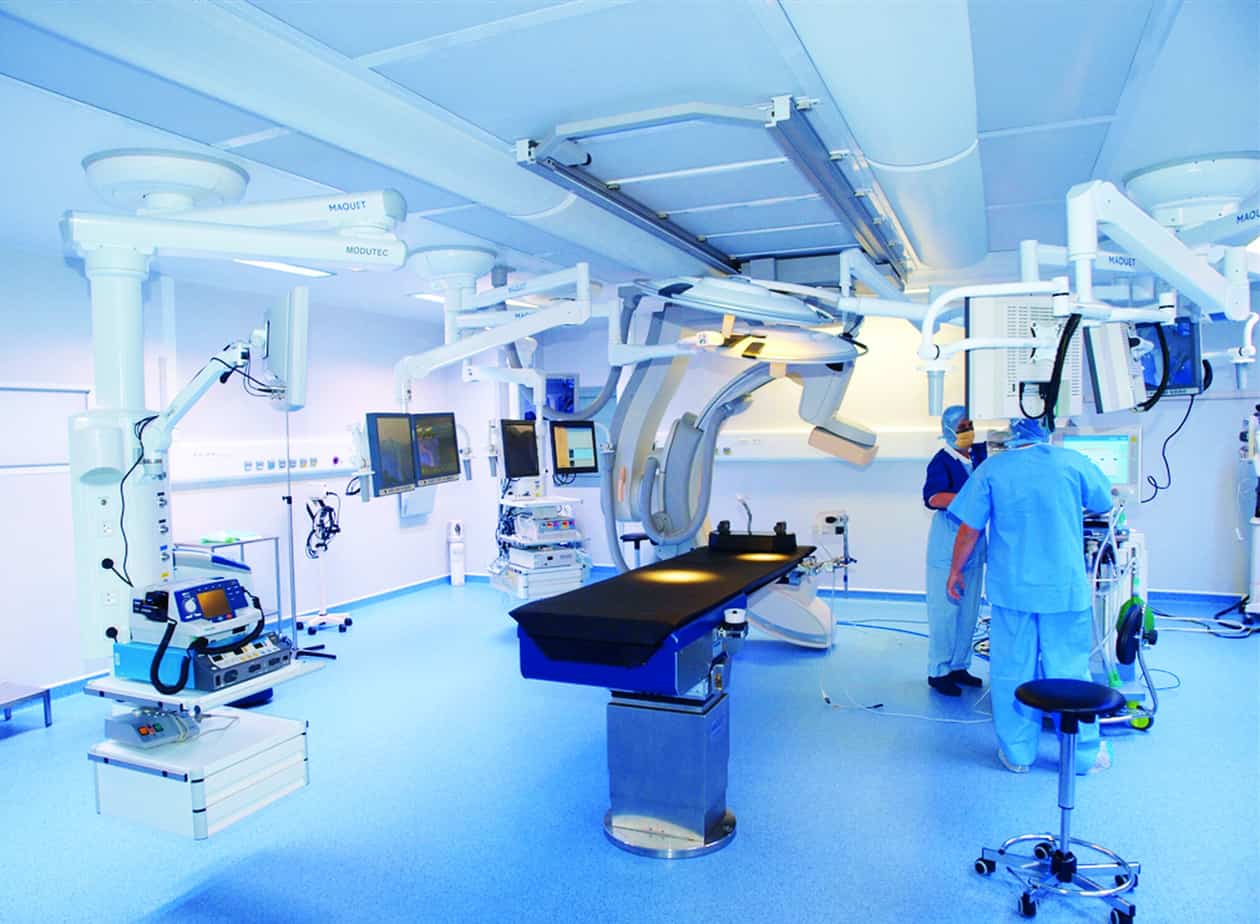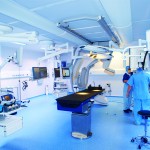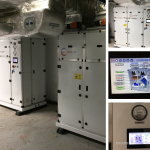|
he continued development of both minimally invasive procedures and imaging technologies led to the development of the hybrid operating room – it combines a conventional operating room with an imaging system – MRI, CT scan or angiography systems. This hybrid operating room makes it possible to simultaneously reach a diagnosis and provide treatment during surgical interventions.
A hybrid operating room is an enormous investment; its acquisition alone costs between one and two million Euros; added to this are high remodeling and maintenance costs.
On the one hand, the economic benefit is reflected in the increased demand for intricate surgeries. On the other hand, surgery durations, as well as hospital stays for patients, are shorter thanks to gentler surgery methods. In addition, intraoperative imaging also facilitates immediate quality assurance which results in a reduction of errors.
Two aspects are especially important when building and utilizing the hybrid operating room. First, progressive planning is essential; and adequate time and resources should be spent during the planning stage. To ensure the best possible utilization at a later point, all parties involved need to be included in the run-up.
ATA had the chance to participate in one building hybrid room in 2006 for the first time with a laminar air flow ceiling at Jacques Cartier Institute in Masst (France). Our main issue was the limited space for many equipment, and the organization between screens and operating lights.
Today, the hybrid or is being used especially by the cardiovascular disciplines. But in the near future, more and more subdisciplines will use the hybrid or, so that it has to change to meet the altering requirements.
Article: MEDICA Magazine -Hybrid Operating Room: The OR of the Future Today?
Photo and video : YOUTUBE / Jacques Cartier Institute – Massy (FRANCE 91)
|

What is a hybrid operating room
Recent Posts



